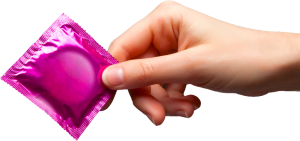Sexually transmitted diseases (STDs) are among the most frequently asked health topics. Doctors often say, “Prevention is better than cure,” which is especially true for STDs. Some of these diseases, like HIV/AIDS, remain incurable once contracted. Additionally, having an STD can harm relationships and incur significant costs for treatment.
So, how can you avoid STDs? Here are ten guidelines to help you stay safe and healthy.
- Avoid Sexual Activity
If you do not engage in sexual activity, you eliminate the risk of contracting an STD. While this may seem simple, it can be challenging for many in real-life situations. However, abstinence remains the most effective method for preventing STDs.
- Be Faithful
Since STDs are transmitted through sexual contact, mutual faithfulness between two partners without STDs ensures that no infection is passed. This requires both partners to remain faithful; it is not enough for just one to be committed.
- Avoid Casual Sexual Encounters
Engaging in sexual activity with multiple or unknown partners significantly increases the risk of contracting STDs. This includes encounters with commercial sex workers or individuals offering paid sexual services. For men, this also applies to sex with other men, and for women, this includes same-sex encounters.
- Use Condoms

If you cannot follow the previous advice, use condoms consistently and correctly. For men, wearing a condom during vaginal or anal intercourse reduces the risk of STD transmission. Women should ensure their male partners use condoms during sexual activity. While not 100% effective, condoms are a significant protective measure. Refer to resources like “How to Use a Condom” to learn the proper way to use one.
- Avoid High-Risk Sexual Behaviors
Certain sexual practices carry higher risks than others. For instance, anal sex poses a greater risk because the rectal lining is thin and prone to tears, making it easier for infections like HIV/AIDS to spread. Even oral sex, such as performing or receiving oral stimulation, can transmit some STDs.
- Avoid Alcohol and Drugs During Sexual Activity
Being intoxicated or under the influence of drugs lowers inhibitions and increases the likelihood of risky behavior, such as forgetting to use protection. Many individuals, particularly women, are more vulnerable to exploitation when intoxicated. Always prioritize safety and clarity of judgment in intimate situations.
- Watch for Early Symptoms
Monitor yourself for any signs of STDs, such as sores, lumps, ulcers, discharge, pain, warts, discoloration, or other unusual changes in your genital area. Early detection is critical for effective treatment.
- Seek Medical Attention Promptly
Although discussing sensitive health issues with a doctor can be embarrassing, early diagnosis and proper treatment are essential to avoid complications. For example, syphilis may initially appear as a small sore that resolves on its own but can later return in a more severe form if untreated. If you contract an STD, inform your sexual partner so they can also get tested and treated. While this may be difficult, it is necessary for both partners’ health.
- Follow the Prescribed Treatment
The bacteria and viruses that cause STDs can become resistant to antibiotics if medications are not taken as directed. Follow your doctor’s prescription carefully. If prescribed antibiotics for seven days, take them for the full duration to ensure the infection is eradicated completely.
- Avoid Fake Remedies
People with STDs are often desperate and may fall for false claims of “cures,” such as herbal treatments or supplements. Be discerning and critical of such products, as they may not only fail to work but also worsen your condition.
Myths That Do Not Prevent STDs
It is important to remember that the following practices are ineffective in preventing STDs:
- Washing the genitals or taking a bath after sex.
- Taking a single dose of antibiotics after sex.
- Urinating immediately after sexual activity.
- Using birth control pills.
By following these guidelines, you can protect yourself and your relationships from the risks associated with STDs. Prioritize health, practice safe behaviors, and seek professional help when necessary. Prevention remains the most reliable form of protection.


